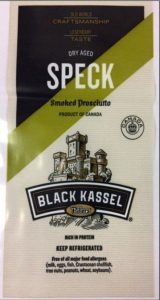A couple of old friends Shannon Majowicz and Ken Diplock and colleagues from Waterloo, (that’s in Canada) are doing good work looking at food safety stuff with high school students- evaluating training efficacy using observation. They published their work demonstrating some sustained food safety behaviors following a training program, this month in the Journal of Food Protection.
Kenneth J. Diplock, Joel A. Dubin, Scott T. Leatherdale, David Hammond, Andria Jones-Bitton, and Shannon E. Majowicz. 2018. Observation of High School Students’ Food Handling Behaviors: Do They Improve following a Food Safety Education Intervention?
Journal of Food Protection: June 2018, Vol. 81, No. 6, pp. 917-925
Youth are a key audience for food safety education. They often engage in risky food handling behaviors, prepare food for others, and have limited experience and knowledge of safe food handling practices. Our goal was to investigate the effectiveness of an existing food handler training program for improving safe food handling behaviors among high school students in Ontario, Canada. However, because no schools agreed to provide control groups, we evaluated whether behaviors changed following delivery of the intervention program and whether changes were sustained over the school term. We measured 32 food safety behaviors, before the intervention and at 2-week and 3-month follow-up evaluations by in-person observations of students (n = 119) enrolled in grade 10 and 12 Food and Nutrition classes (n = 8) and who individually prepared recipes. We examined within-student changes in behaviors across the three time points, using mixed effects regression models to model trends in the total food handling score (of a possible 32 behaviors) and subscores for “clean” (17 behaviors), “separate” (14 behaviors), and “cook” (1 behavior), adjusting for student characteristics. At baseline, students (n = 108) averaged 49.1% (15.7 of 32 behaviors; standard deviation = 5.8) correct food handling behaviors, and only 5.5% (6) of the 108 students used a food thermometer to check the doneness of the chicken (the “cook” behavior). All four behavior score types increased significantly ∼2 weeks postintervention and remained unchanged ∼3 months later. Student characteristics (e.g., having taken a prior food handling course) were not significant predictors of the total number of correctly performed food handling behaviors or of the “clean” or “separate” behaviors, and frequency of cooking and self-described cooking ability were the only characteristics significantly associated with food thermometer use (i.e., “cook”). Despite the significant increase in correct behaviors, students continued to use risky practices postintervention, suggesting that the risk of foodborne disease remained.






 and CCD toys and all sorts of things emerged – and the smaller, business-oriented uni across the street,
and CCD toys and all sorts of things emerged – and the smaller, business-oriented uni across the street, 